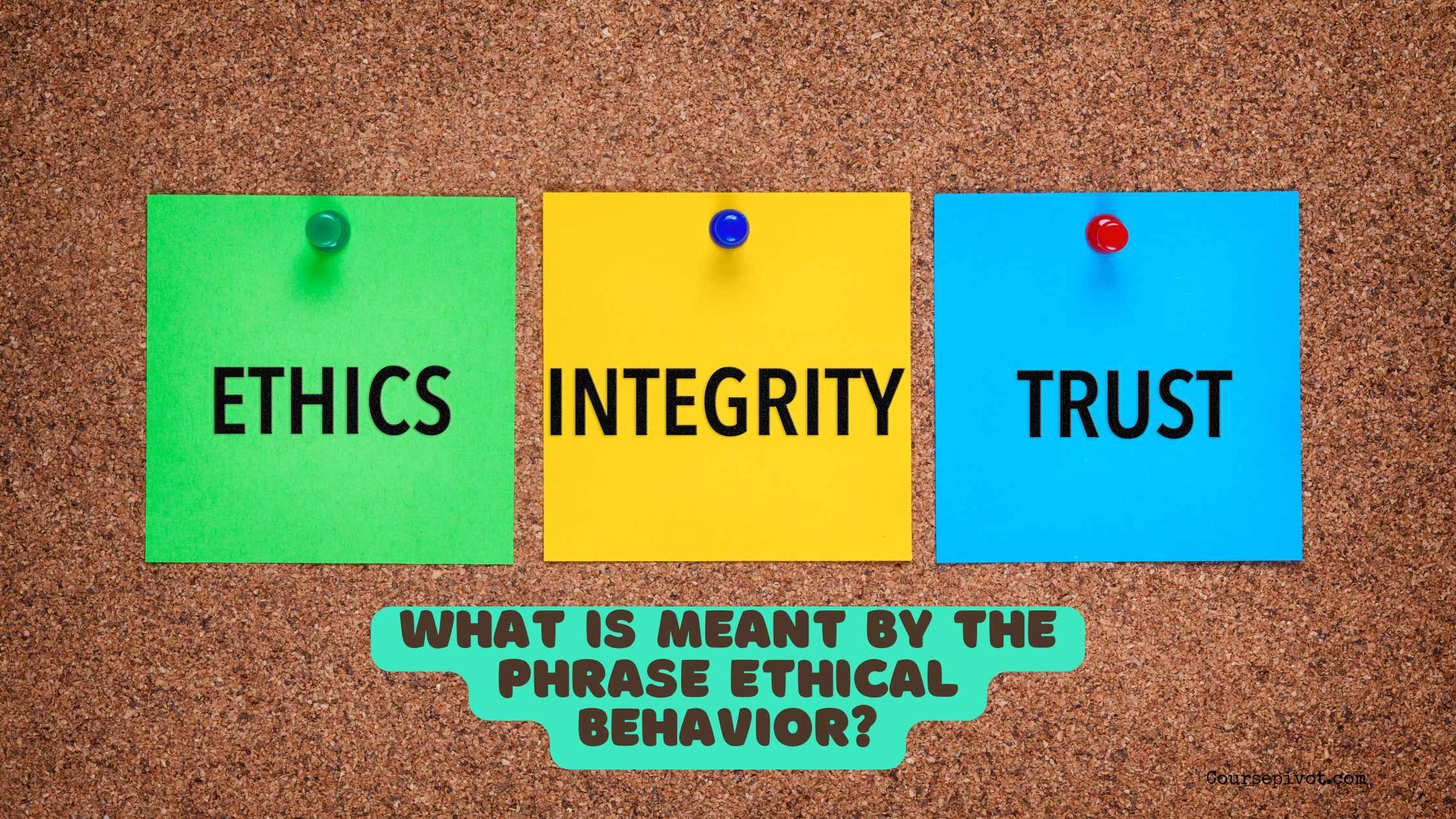
What is meant by the phrase Ethical Behavior?
When Sam Bankman-Fried was sentenced to 25 years in prison in 2024 for stealing billions from FTX customers, prosecutors didn’t primarily argue that he broke laws—they argued he violated basic ethical behavior while claiming to be the most ethical person in crypto. The phrase “ethical behavior” gets thrown around constantly, yet it quietly shapes trust in business, medicine, relationships, and daily life. So what does it actually mean?
Table of Contents
This exploration breaks down the real meaning of ethical behavior, why it sometimes clashes with legal behavior, and how ordinary people practice it every day.
The Core Definition: Choosing Values Over Convenience
Ethical behavior is the deliberate choice to act in ways that respect the rights, dignity, and well-being of others—even when no one is watching and even when it costs you something. It goes beyond following rules; it means aligning actions with deeply held principles such as honesty, fairness, respect, responsibility, and compassion.
Philosophers often describe it as behavior that could be universalized: Would the world be okay if everyone acted this way? If the answer is no, the action probably fails the ethical test.
Four Main Lenses People Use to Decide What’s Ethical
Different frameworks help people navigate tough choices. Most of us switch between them without realizing it.
- Consequence-based (Utilitarian) – Does this action create the greatest good for the greatest number? A doctor triaging patients in an emergency room often uses this lens.
- Rule-based (Deontological) – Are there universal duties like “never lie” or “keep promises”? Kant’s famous line—“Act only according to that maxim whereby you can at the same time will that it should become a universal law”—still guides many professions today.
- Virtue-based – Am I being the kind of person I admire (honest, courageous, compassionate)? Aristotle focused on character over specific acts.
- Care-based – Does this decision preserve relationships and show empathy? Common in family and close community settings.
Real ethical behavior usually blends several lenses instead of relying on just one.
How Ethical Behavior Differs from Legal Behavior
Legal doesn’t always equal ethical—and ethical doesn’t always equal legal.
- Returning a lost wallet with $10,000 inside is ethical (and often legal).
- Segregation was legal in the U.S. until 1964, yet widely recognized as unethical.
- Whistleblowers like Edward Snowden broke laws but many consider their actions ethically justified.
- Companies can exploit tax loopholes perfectly legally while millions see the behavior as unethical.
The gap explains why corporate codes of conduct and professional oaths (doctors, lawyers, journalists) exist—they demand higher standards than mere law.
Everyday Examples That Bring the Concept to Life
The Overcharged Coffee
You notice the barista charged you $4 instead of $6 for your drink. Returning to pay the difference when no one would ever know is ethical behavior.
The Performance Review
Your boss asks you to exaggerate a colleague’s mistakes in a review to justify layoffs. Refusing—even if it risks your own standing—is ethical behavior.
The Social Media Post
You see a false rumor about a friend spreading online. Choosing not to share it, and privately correcting it when possible, reflects ethical digital behavior.
Small moments like these build (or erode) trust far more than grand gestures.
Why Ethical Behavior Still Matters in 2025
Trust in institutions sits near historic lows—only 26% of Americans trust large corporations according to the 2025 Edelman Trust Barometer. In a world of deepfakes, algorithmic bias, and anonymous online harassment, personal ethical behavior has become one of the few remaining currencies of trust.
Companies with strong ethical cultures outperform others financially by up to 12% over ten years (Ethisphere Institute, 2024). Employees who believe their workplace is ethical report 40% lower burnout and are 50% less likely to leave.
Practical Ways to Strengthen Your Own Ethical Muscle
Developing ethical behavior is like building any habit—repetition and reflection matter more than perfection.
- Pause before decisions that feel uncomfortable, even slightly.
- Ask three quick questions:
- How would this look on the front page of a newspaper?
- Would I be proud to tell my closest loved ones?
- Am I treating others the way I would want to be treated?
- Seek diverse perspectives—ethical blind spots often shrink when you include voices different from your own.
- Practice small acts of integrity daily (returning extra change, crediting others’ ideas, admitting mistakes).
- Reflect weekly: What was my toughest ethical moment this week, and how did I handle it?
Key Takeaways
Ethical behavior isn’t about being perfect or saintly. It’s the ongoing commitment to act with integrity, empathy, and fairness—even when it’s inconvenient, costly, or invisible to others.
It lives in the gap between what you could get away with and what you know is right. Closing that gap, moment by moment, is what separates ordinary choices from ethical ones.
In a skeptical age, consistent ethical behavior remains one of the most powerful ways to earn trust, build meaningful relationships, and sleep well at night. And in the end, that might be the simplest and strongest reason to choose it every single day.
Cite this article
You can copy and paste your preferred citation format below.
Martin, L. & Arquette, E.. (2025, November 25). What is meant by the phrase Ethical Behavior?. Coursepivot.com. https://coursepivot.com/blog/what-is-meant-by-the-phrase-ethical-behavior/



